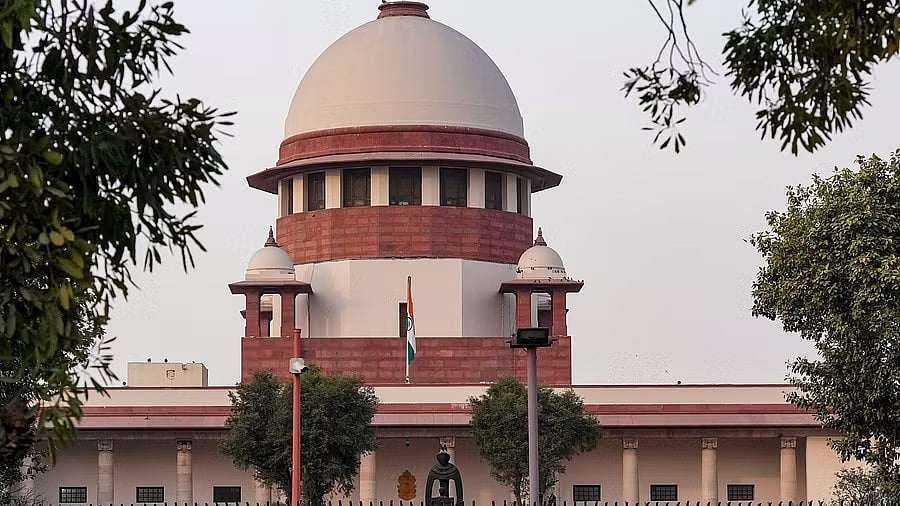
The Supreme Court of India.
Credit: PTI File Photo
New Delhi: The Supreme Court on Friday acquitted a woman in a case of dowry harassment of her daughter-in-law, who ended her life by suicide in 2001, relying upon the testimony of her neighbour.
Holding that in such matters the word spreads faster than the wind about a daughter-in-law being harassed for the dowry by the parents in law, a bench of Justices Aravind Kumar and N V Anjaria set aside the Uttarakhand High Court's judgment.
The High Court had upheld conviction and sentence of appellant Bhagwati Devi, brushing aside testimony of the neighbour produced as defence witness.
The HC held the neighbour could not have deposed any fact with regard to the demand of dowry as it happened within the four walls.
The court described it "an erroneous finding", saying particularly in such matters the word spreads faster than the wind about a daughter-in-law being harassed for the dowry by the parents in law.
"Such facts being conspicuously absent in the instant case, we have no hesitation in arriving at a conclusion that the conviction of the appellant for the offence punishable under Section 498-A and the sentence imposed on her cannot be sustained,'' the bench said.
The court noted that the neighbour of the appellant deposed that she had never made any demand for dowry.
The neighbour also deposed that the deceased had informed her of not keeping well.
She being neither the relative of the appellant nor belonging to the same community to which the appellant belongs would indicate that there was no interest in her to depose against the factual matrix or in favour of the appellant, the court felt.
Acquitting the appellant, the court also noted testimony of the father of the deceased woman does not indicate of any such demand for dowry having been made or the deceased having been inflicted with cruelty so as to drive her to commit suicide.
It also found a holistic look at the deposition of the mother of the deceased would also not inspire any confidence to any person of common prudence to arrive at a conclusion that on account of either harassment for dowry or on account of demand for dowry made by the appellant she had been perforced to commit suicide.
The court said even the brother of the deceased admitted that there was no demand for dowry made before marriage and the marriage was solemnised happily and properly and only on the basis of doubt he was expressing that his sister might have been murdered.
"Thus, the cumulative effect of the evidence of these witnesses would drive us to the irresistible conclusion that the deceased had not committed suicide on account of either demand for dowry being made or cruelty being inflicted on her,'' the bench said.
In its decision, the court also relied upon the case of Manju Ram Kalita Vs State of Assam (2009) wherein it was held cruelty for purpose of Section 498-A of IPC is to be established in that context as it may be different from other statutory provisions.
In other words, it has been held that it has to be established that the woman had been subjected to cruelty continuously/ persistently or atleast in close proximity of time of lodging of complaint, the bench said.
